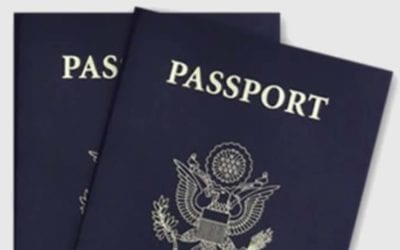Consumers can claim a victory in the back and forth with the airlines when it comes to disclosure of baggage charges. Today, the Department of Transportation (DOT) denied the a request by the airlines to delay their rule requiring airlines to disclose passenger-specific baggage fees and make the marketing carrier’s baggage charges apply across code-share partners and international partners.
The new rules will come into effect on January 24, 2012.
Under the new rules airlines will be required to list passenger-specific baggage charges on airfare itineraries so that passengers will know exactly how much they will have to pay for checked luggage when they fly. These baggage charges are expected by DOT to include any discounts provided by frequent flier status and and credit cards used to purchase tickets. The baggage charges will also take into account whether travelers are traveling under one record locator, or if they are traveling on separate tickets.
Here is the DOT denial of extension letter.
These are the comments filed by the Consumer Travel Alliance and the Business Travel Coalition in opposition to the request for extension by Airlines For America and their partners. The two consumer advocacy groups argued:
Page after page of the Airline Associations’ request for an extension explains the problems that their own actions have created. Not one of the issues they describe is the fault of passengers. What was once a transparent worldwide airline pricing system, has been complicated by the carriers themselves through the imposition of scores of fees, for services that once were common and included in the airfare. Airlines instituted these fees without regard to how they would affect passengers and their ability to compare prices across airlines.
This is a major, if half-way, victory for consumers. The Consumer Travel Alliance has been active in Washington working for baggage fee disclosure for more than two years. The organization expects that the next phase of disclosure will mandate that airlines disclose baggage fees before tickets are sold rather than after the fact on ticket itineraries.
Much of the airlines’ request for a delay of this rule was based on complications of working with foreign airline partners. However, DOT noted that the vast majority of airline travel takes place within the domestic market with code-share partners that are an extension of the domestic carrier.
…where all of the flights on a passenger’s itinerary are operated by a single carrier with no code-share or interlining, or with domestic code sharing between a mainline carrier and its regional partners. The vast majority of passengers fly on these types of itineraries. There is no reason for airlines not to provide consumers accurate information about baggage allowances and fees and to apply the same allowance and fee throughout a passenger’s itinerary when it is one carrier that is marketing and operating the flight or the flight only involves domestic code-share service on a regional partner.
The next biggest group of passengers has itineraries with code-share flights that involve international code-share service (e.g. Delta with Air France) or domestic code-share service between mainline carriers (e.g., United Airlines with US Airways). Here as well there is little reason not to apply a single baggage allowance/fee policy and to communicate that policy to consumers. Airlines have known for many years of the Department’s code-share policies that require a marketing carrier’s contract of carriage to apply to a passenger’s air transportation and the need to include accurate baggage information concerning such flights in their tariffs and contracts of carriage.
In deference to the airlines’ petition regarding foreign alliance partners and interline issues DOT will use “discretion to determine in which cases to pursue enforcement action against airlines with respect to air travel consumer protection.”
Finally, this is a big win for airline passengers. Consumers still have a long way to go before airlines release their baggage fees and seat reservation fees prior to purchase and allow consumers to compare the total cost of air travel across airlines. But, today’s strong denial of the airlines’ request for an extension sends a strong message to the airline industry that their days of ignoring the effects on consumers of their pricing decisions and their seemingly limitless fees is coming to an end.

Charlie Leocha is the President of Travelers United. He has been working in Washington, DC, for the past 14 years with Congress, the Department of Transportation, and industry stakeholders on travel issues. He was the first consumer representative to the Advisory Committee for Aviation Consumer Protections appointed by the Secretary of Transportation from 2012 through 2018.


